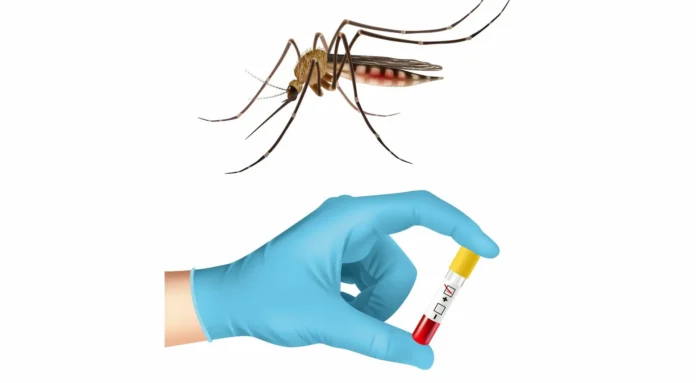The arrival of the monsoon season brings a much-needed respite from the scorching heat, but it also ushers in a rise in fevers and illnesses. With dengue fever making headlines in India, it’s crucial to understand the differences between it and the more general “monsoon fever.”
Dr. Moinuddin, a Consultant in Internal Medicine at CARE Hospitals in Musheerabad, provided insights into distinguishing these conditions and staying healthy during the rainy season. Dengue fever, caused by the dengue virus and transmitted by mosquitoes, presents with high fever, severe headaches, pain behind the eyes, joint and muscle pain, and rash. In severe cases, it can progress to dengue hemorrhagic fever or dengue shock syndrome, which require immediate medical intervention.
On the other hand, “monsoon fever” is a broad term used to describe fever arising from various infections that become more prevalent during the rainy season. It can be caused by bacterial, viral, or parasitic infections. Symptoms typically include fever, chills, body aches, and sometimes gastrointestinal issues. Unlike dengue, monsoon fever is less likely to cause severe complications if managed properly.
Dr. Moinuddin emphasized the importance of preventive measures for both conditions. To prevent dengue, individuals should focus on reducing mosquito exposure by using insect repellents, wearing long-sleeved clothing, and eliminating mosquito breeding sites such as stagnant water in containers. Public health initiatives and community efforts to control mosquito populations also play a vital role.
For monsoon fever, maintaining good hygiene and avoiding contaminated food and water are crucial. Proper sanitation and consuming clean, well-cooked food help reduce the risk of infections that cause monsoon fever. Staying hydrated and seeking medical advice for persistent symptoms are also important steps in managing the condition.
Understanding the distinctions between dengue fever and monsoon fever helps in effectively managing and reducing the risk of these illnesses during the rainy season. Dengue requires vigilance against mosquitoes, while monsoon fever prevention revolves around hygiene and food safety. Dr. Moinuddin’s insights provide valuable guidance for staying healthy during this transitional period.
Dr. Moinuddin highlighted that while both dengue and monsoon fever can arise during the rainy season, their management differs significantly. Dengue fever requires specific attention to symptoms and immediate medical care if severe symptoms like bleeding or persistent pain occur. This is because dengue can escalate quickly, necessitating close monitoring and treatment to prevent complications.
In contrast, monsoon fever often responds well to general symptomatic treatment and preventive measures. The wide range of causes for monsoon fever means that treatment can vary based on the underlying infection. Commonly, supportive care, such as hydration and rest, along with appropriate antibiotics or antivirals if a bacterial or viral infection is identified, helps in recovery.
Dr. Moinuddin also pointed out the importance of early diagnosis. Recognizing the early signs of dengue versus other fevers can significantly impact the outcome. Dengue typically presents with a more sudden onset of high fever and severe pain, while monsoon fever might start with milder symptoms and develop more gradually.
Education plays a critical role in prevention. Public awareness campaigns about mosquito control, sanitation, and hygiene practices are crucial in managing these health risks. Dr. Moinuddin stressed that community involvement in eliminating mosquito breeding grounds and promoting clean water and sanitation can prevent the spread of both dengue and other monsoon-related illnesses.
Overall, distinguishing between dengue fever and monsoon fever enables better management and reduces the risk of severe outcomes. Dr. Moinuddin’s advice underscores the need for vigilance and preventive measures to ensure health and well-being during the monsoon season.

